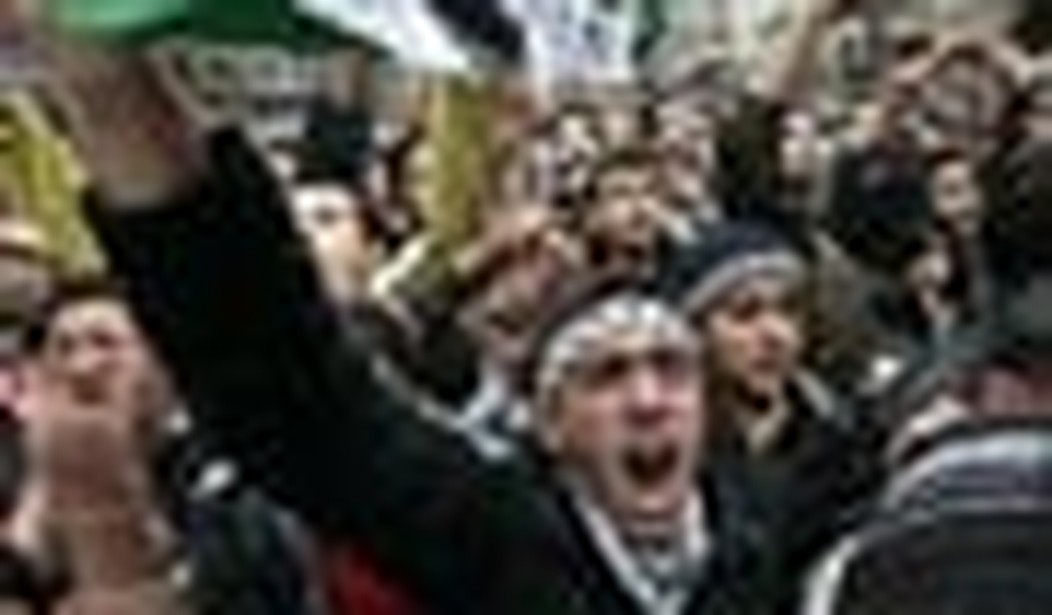WikiLeaks’ exposure of 250,000 diplomatic cables has stimulated a debate on how the U.S. must deal with Iran’s drive towards nuclear weapons and the region’s democratic deficit. Both issues originally came to the fore on George W. Bush’s watch. Neither were resolved before Barack Obama assumed office. Do the WikiLeaks clarify what the U.S. should do?
To judge from their statements, most Arab leaders, other than those of Iran-allied Syria and Syrian-dominated Lebanon, are decidedly queasy about an Iranian bomb.
Saudi Arabia’s King Abdullah pleaded with Obama to “cut off the head of the [Iranian] snake.” The king of Bahrain declared that the Iranian nuclear program “must be stopped” and that “the danger of letting it go on is greater than the danger of stopping it.”
The United Arab Emirates (UAE) defense chief, Crown Prince Mohammed Bin-Zayed of Abu Dhabi, urged the U.S. to take action against Iran “this year or next,” stating flatly that “Ahmadinejad is Hitler.” UAE Foreign Minister Sheikh Abdullah bin Zayed Al Nahyan warned a congressional delegation last February that “if Iran goes nuclear, others in the region will move forward on the same track, and the nuclear nonproliferation treaty will completely break down.”
Yet taking these statements at face value produces no agreement on what U.S. policy should be.
For example, the Ethics and Public Policy Center’s Peter Wehner argues that WikiLeaks clearly demonstrates an Arab fear toward Iran and a lack of interest in the Palestinian issue. He suggests we should therefore strike Iran if necessary, irrespective of the Israeli/Palestinian situation, to the benefit of U.S., Israeli, and Arab interests.
In contrast, the New America Foundation’s Peter Beinart cites a survey to argue that, while Arab leaders dread a nuclear Iran, the Arab masses do not. He concludes that U.S. interests are in conflict with the goal of democratic change in the Middle East.
Wehner and Beinart both take the words of Arab leaders at face value. But should we?
Arab leaders are as adept as any — arguably better than most — in the diplomatic art of seduction. When Arab diplomats tell their American counterparts what they think they want to hear, we should react with suspicion rather than relief.
Our disbelief should not, however, be automatic. We should not assume that Arab heads of state are lying simply because they may not, at any given moment, find it necessary to utter the truth.
Put simply, Arab leaders can detest America, and even work to see America out of the Middle East, without wishing the U.S. to fail against an ascendant Iran that threatens them too. Similarly, they can hate Israel and U.S. support for it, without wishing to make U.S. action on Iran hostage to the Sisyphean task of Israeli-Palestinian peace-making.
Arab leaders know better than most that a conflict whose fires they themselves stoke — through funding radicals and anti-Israel incitement — isn’t about to be solved.
For these leaders, seeing off America is a long-term issue, whereas stopping Iran going nuclear is an urgent one.
In other words, WikiLeaks tells us little beyond what many already surmised — that a nuclear Iran disturbs some of our fair-weather Arab friends, but not their publics.
Does that leave U.S. interests and the goal of democratic change in the Middle East in conflict?
No — unless we take the simplistic view that, because we want a more liberal, humane Middle East, we need to defer to whatever point of view emerges from its streets.
This is something we can’t always do even with our closest friends. Can we expect to do it when we have little in common with societies that are illiberal and angry — and kept that way by their governments?
To think that we can is to make the same mistake the Bush administration did in Iraq and the Palestinian Authority, to name two examples, by prioritizing means (elections, constitutions, referenda) over ends (civil society, political and religious pluralism).
Pluralism and civil society must precede democracy, not the other way round. A pluralistic, civil society is less likely to hate America, loathe our military presence, or be brainwashed into obsessing about Israel. Yet the U.S. can’t suspend its vital interests until this evolution occurs. Nor can the U.S. make their attainment conditional on the endorsement of the Arab street.









Join the conversation as a VIP Member